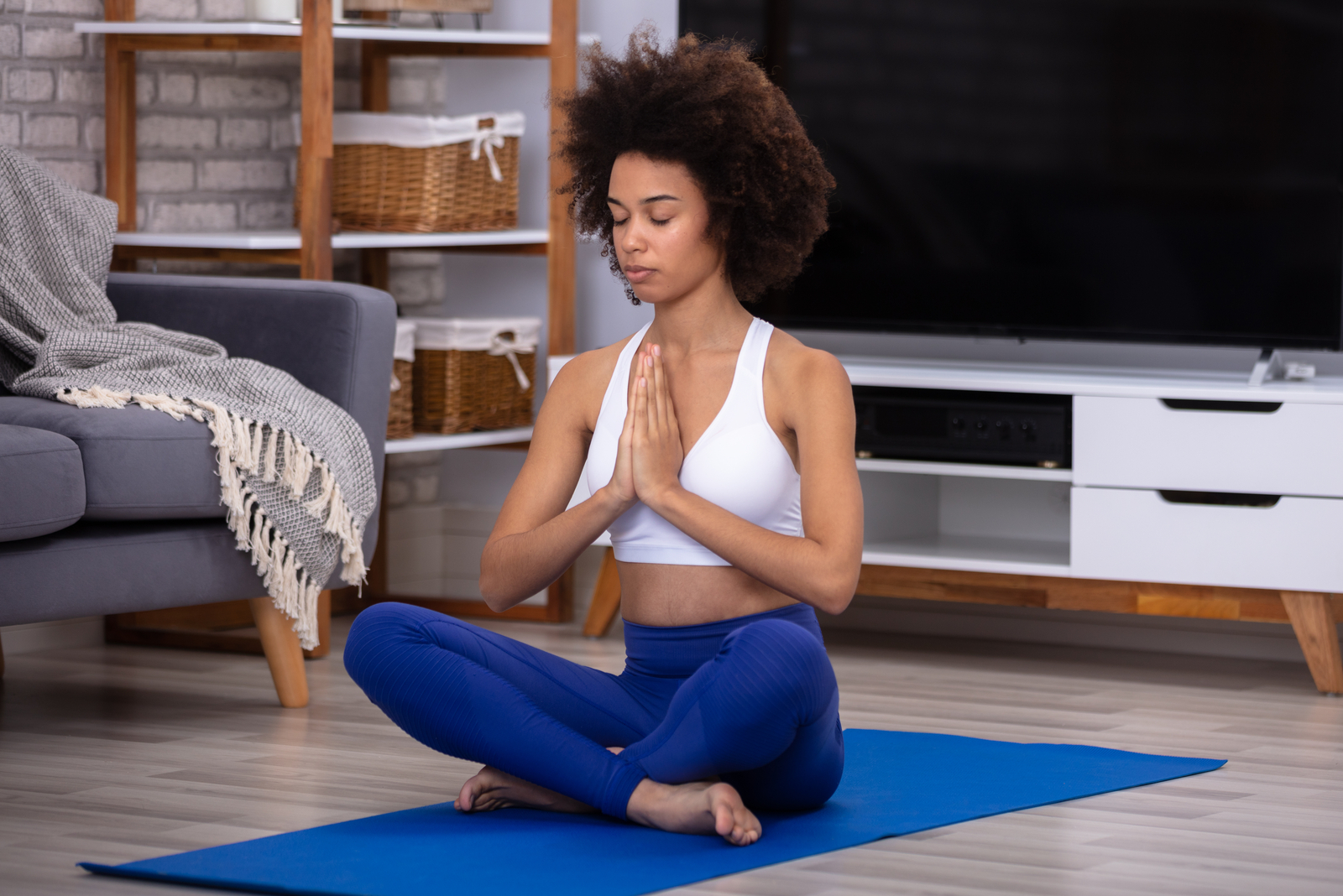How To Recharge Social Battery And Feel Energized
Extroverts rarely feel like they want to be alone. They enjoy socializing in any capacity and at any time. To an extrovert, time spent around people is rarely tiring.
Introverts, on the other hand, have a limited capacity for socialization. After spending time with other people, introverts need some time away from everyone to process their impressions and feelings.
This can be aptly described as having a social battery: when an introverted person’s capacity for socialization is at its limit, they need alone time to recharge. An extroverted person is the opposite – when their energy levels are low, their social battery is depleted, and they need to spend time with others.
Everyone’s social battery has a different capacity. For example, people with social anxiety need to recharge their social battery more often. Different activities use different amounts of the existing charge: introverted people spend far less energy hanging out with people they’re close to than people they don’t know well.
Let’s see how to recharge social battery, whether you’re an introvert, extrovert, or in between, and how to manage your social interaction for optimal battery use.
How To Recharge Social Battery: For Introverts And Extroverts
Socializing gives an extrovert energy and uses it up for an introvert. Spending time in a crowded and hectic environment can be exhausting for an introvert, and some of them have a strong preference for solitude. An extrovert living alone or working from home can easily become lonely. However, this isn’t the whole story.
It’s important to remember that introverts can feel lonely, too, and extroverts can feel like they want to spend some time alone. Depleting your social battery depends on several factors: the kind of interactions and the kind of people you’re around, the size of the group, how long the interaction or lack of interaction lasts, etc.
Pay attention to how you’re feeling and listen to your body and emotions.
When You’re Feeling Lonely

Extroverts’ social battery depletes quickly when they’re alone, and they easily start to feel lonely. They recharge by interacting with people, and they enjoy large groups. An extrovert needs a bustling social life to feel energized because as soon as they’re on their own, their battery starts losing charge. It can be difficult for them to be alone without feeling lonely.
Sometimes introverts feel lonely, too, so they can also use some of these tips when they need them. Here’s how to recharge social battery if you’re feeling lonely by choosing a social activity.
1. Regularly call friends and family
When you don’t have an opportunity to interact with people in person, phone and especially video calls can be a lifesaver. Regularly calling close friends and family members helps you keep in touch with their lives and gives you a needed hit of socialization when you don’t have other options.
2. Make plans with loved ones
To avoid being in a situation where everyone is busy when you spontaneously call them up, make sure to arrange as many meet ups with people you care for as you need. If you do it in advance, you won’t have to stay home when you’re in the mood to hang out.
3. Connect with your neighbors
Many people only greet their neighbors without ever developing any connection with them. Being on friendly terms can give you a chance to have company just next door, as well as having someone nearby to rely on.
4. Take classes or attend workshops
Taking classes is an amazing way to have a regular chance to socialize with a group of people. What’s more, all of them share a common interest with you, so attending a workshop or taking a class is a great way to make friends.
5. Join a club or a society
Book club, fandom club, or activity club – whatever you like, there are other people who like it too and like to get together to do it. When you’re feeling lonely, it’s a great environment to make you feel energized.
6. Volunteer
Volunteering is generous, helpful, and kind, but it’s also a great way to connect with people. Find a cause you care about or someone who needs your help, and donate some of your time while you recharge your social battery.
7. Attend events
Attending concerts, art shows, or parties is something you can do with another person or on your own because once you get there, you’re guaranteed to meet people and socialize while enjoying what the event itself has to offer.
8. Host gatherings
If you prefer bringing people to you, organizing something at home or a venue is a great idea. You can organize gatherings ranging from a game night to a party, as long as you find enough people to invite.
When You’re Feeling Burned Out

An introvert wakes up with their battery at full charge, but as the day goes on and they interact with people, they lose social energy and need to take a break.
Depending on the activity and the people they socialize with, the drain on their battery can be faster or slower. For example, being at social events like a party or surrounded by many people, like at the office, takes a lot more energy than hanging out with their best friend.
In the same way introverts can feel the need for interaction, extroverts sometimes also need to be alone. So while the following suggestions are mostly for introverts, extroverts might sometimes need to take it easy as well.
1. Idleness
Sometimes a bit of rest might be just what you need to recharge. Simply doing nothing can be exactly what you need when you’ve had too much socialization and your battery feels drained. Doing nothing and talking to no one can really be a magic pill when more active rest is too much.
2. Relaxation
Doing relaxation activities on your own can speed up how fast you recharge energy. Reading something easy and entertaining, pampering yourself, or taking a bubble bath can help restore your well-being after your energy is spent.
3. Journaling
After spending too much time around people, you might feel unable to find any words, and journaling can seem like a chore, but you might be surprised by how much you have to say when you’re the only audience for your words. Journaling can speed up processing everything you’ve experienced so you can recharge quicker.
4. Meditation
Meditation seems harder than it is until you try it. Start by simply focusing on your breathing and letting your thoughts float away. As you get more practice, it becomes a tool for stress relief and personal development. Try adding breathing techniques for stress relief.
5. Reading

Even if you’re not a big reader, you should give this a shot. If you don’t like to read, it’s only because you’ve been reading the wrong things. Everyone can grow to love reading as long as they find something that’s actually interesting to read. Getting lost in a book for a couple of hours is a great way to recharge your batteries.
6. Creativity
Making something is incredibly healing and restorative if you approach it without pressure. Cooking to express your taste instead of cooking to impress your guests is much more fun. Lose yourself painting or crafting to recharge your social battery.
7. Sleep
Sometimes only sleep can help when your batteries have run out. Sleep is restorative and resets your energy for the next day, refreshing your mind and body. To take full advantage of the healing properties of sleep, keep a regular sleep schedule.
8. Exercise
Exercise reduces stress and raises endorphins, which help you relax. Doing solo physical activities like running, yoga, or going for a walk helps you restore the energy you’ve lost.
If you want to go to the gym without being bothered, invest in a pair of wireless earbuds and listen to music or a podcast while you work out. People are far less likely to try talking to you if they can see you won’t be listening.
9. Playing video games
Video games require focus, which helps clear your mind. Simple games you can play mindlessly without thinking give you short bursts of feeling accomplishment. More complex games make you get involved in the story or gameplay mechanic, which gives you some respite from everyday concerns and helps you recharge.
10. Being in nature
Spending time outside of your usual environment can help you feel refreshed, but being surrounded by nature is especially healing. Going hiking, taking a nature walk, going for a picnic, mountain climbing, and other forms of spending time in nature helps you relax and recharge.
How To Tell That Your Social Battery Is Draining

Knowing your battery is low makes it possible to take action before you’re completely empty. Don’t wait until you’re absolutely exhausted and overwhelmed. If you learn to monitor how you feel, you can leave to spend some alone time before this happens.
You can recognize that your battery is about to run out if you pay attention to these signs:
• You start to become anxious and feel restless, tense, and nervous. It’s a response to feeling like you’re in a situation you can’t escape from.
• You feel overwhelmed: the situation you’re in becomes too much for you. This is a sign that your social battery is nearly depleted.
• You feel irritable. Everything and everyone around you becomes annoying, and you feel like you might lash out at the next person who talks to you.
•You’re losing interest in social interaction, even if you’d normally be involved. When your battery is running low, the energy you need to feel involved in communication is gone.
• You’re losing focus, and your mind is wandering. You stop listening and paying attention to your environment and get lost in your thoughts.
• Your senses are heightened. Bright lights, chatter around you, the clanking of cutlery, or the sound of traffic all become more noticeable, and you feel uncomfortable in your environment.
• You feel tired and sleepy. Mental exhaustion kicks in and makes you feel physically exhausted.
• You feel bored with the situation and the conversation. You lose interest in what’s going on around you, and it becomes difficult to keep up with the conversation.
• You feel disconnected. It’s difficult to be involved in interaction with others, and you stop enjoying their company.
• You want to do something relaxing away from where you are at the moment. You daydream about an activity you find relaxing.
• You find it difficult to be emotionally involved in the interaction, such as feeling compassion if someone is talking to you about difficulties or being amused by something funny.
• You want to go away or go home. You regret not staying at home instead of attending the social gathering, even if at first you found it enjoyable. You want to leave, and you’re looking for an opportunity to do so.
How To Prevent Burnout
There are two ways to approach burnout: managing your involvement in social situations to prevent or alleviate it and activities you can do for immediate relief.
1. Practice self-care

Self-care is the first step in solving many problems related to emotional and mental well-being. Taking the time to meet your needs helps you keep your social battery charged for longer.
If you’re eating properly, getting enough sleep, exercise, and sun, and spending time in an environment you like, you’re more stable, and it becomes much easier to regulate how socialization affects you.
2. Have a schedule
When you know ahead of time that you’ll be involved in a social situation that might be draining, you can take steps to make it easier. This is why planning around social events is helpful.
For example, if you know that you have to attend an office party, you can prepare for it by planning other intense social interactions when you’ve recovered your battery completely, or if you can’t avoid it, make sure you’re diligent about self-care and get enough rest between them.
3. Learn how you react to social situations
Social interactions have too many variables you can’t control, which is especially problematic for people with social anxiety. When you talk to someone, you worry about what to say and how to say it. When you’re in a group, you want to fit in and contribute to the conversation and not be misunderstood.
Familiarize yourself with the social situation in advance. Knowing how you usually react in a situation and how it will probably make you feel can be very helpful in preparing yourself for it can minimize stress.
4. Make time for yourself

Unless you prioritize your well-being, dealing with other people can be very difficult. If you’re not taking enough time to meet your needs, your emotional and social life will suffer.
Set your battery to “power saving mode” by making sure you’re surrounding yourself with what you need, such as taking up hobbies that make you happy.
This is particularly important when you feel like the time you have available isn’t enough, and you can’t take some for yourself. When your life is especially hectic, find something that you can cut out and replace with ‘you time’ to avoid burnout.
5. Know your limits
While socializing, take a break whenever you feel like you need one. Sometimes it’s impossible to leave a social situation, but you can always get up and take a short break when you need one. Learn to recognize your limits and how you feel. When you’re feeling like it’s too much, find a way to check out and calm your mind.
For example, if you feel like it’s difficult to be engaged in conversation, you can let the other person talk and just listen, or excuse yourself and take a moment by going to the bathroom or taking a short walk. These small breaks can help you continue socializing by allowing you to take a breather.
6. Establish boundaries
Taking on more than you can handle is a sure way to emotional and mental exhaustion. Learning to say no and establishing clear boundaries is a challenge for some people, but the more you do it, the easier it becomes. If you let yourself say no to things you would usually do just because someone asked you, you’ll have a much easier time maintaining your social battery.
7. Take it easy with social media
Don’t spend too much time on social media because the amount of information you’re constantly showered with can be overwhelming. You don’t have to stop using it altogether – simply limit how much time you spend using it.
From time to time, it can be useful to take a day off from social media. Disable the apps or at least notifications, and ignore them for at least a day to take a break from the constant stream of information.
8. Find out which activities energize you
Self-awareness is key in taking care of your mental health. When you know what makes you exhausted and what gives you energy, it becomes easier to plan your time in a way that allows you to find balance.
For example, if you like to spend time surrounded by greenery, you can dedicate one day of the weekend to taking nature walks. If running restores your energy, make sure to find the time to do it. If you like to read in your garden, replace an activity you’d do out of a sense of obligation with a cup of tea and a good book.
What About Social Anxiety?

Social anxiety is a completely different category from introversion and extroversion. These two terms are used to describe where a person gets their energy from.
Extroverts prefer being outgoing and active and become energized by social interaction. Introverts prefer to spend time in their inner world and get energy from reflection. (For more information, find your Myers-Briggs Type Indicator here.)
Social anxiety is the fear of social interactions and how they might turn out. It’s different from being shy – social anxiety makes people feel worried and insecure about the outcome. It makes being around others stressful because they’re not sure of their social skills, and they’re afraid of being judged or feeling embarrassed.
There are both extroverts and introverts among people with social anxiety and sensitive people, but their social battery runs out much faster. It’s even worse when someone is both an introvert and suffers from social anxiety. They lose energy much faster than other people.
They can feel exhausted by interactions and feel lonely at the same time, so it’s important that they are diligent about practicing self-care and paying attention to their mental health.
In Conclusion
Are you secretly happy when a friend cancels plans? Is your idea of the perfect night out a night in? If this is you, you might be an introvert who frequently needs alone time.
Do you feel sad if you don’t talk to anyone for a couple of hours and can’t imagine a weekend without leaving the house to meet up with friends? Then you might be an extrovert who loves spending quality time with others.
Social battery is a useful term to describe how much energy someone has for socializing. Introverts and people with social anxiety have a social battery that doesn’t last long and needs to recharge after spending time with others. Extroverts, on the other hand, are energized longer but don’t enjoy spending time alone.
In both of these cases, it’s important how to recharge social battery. Time away from people helps when your battery has been depleted, and finding chances to spend quality time with others is helpful when you haven’t had enough human interaction.







